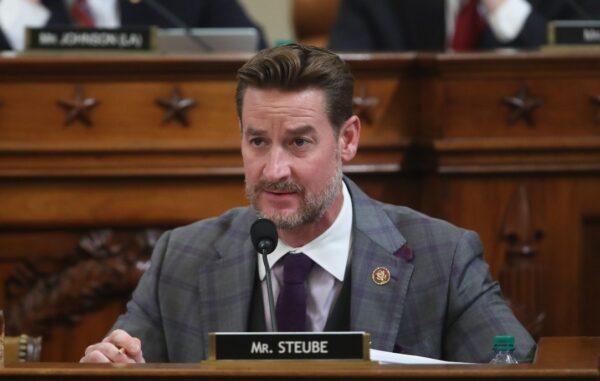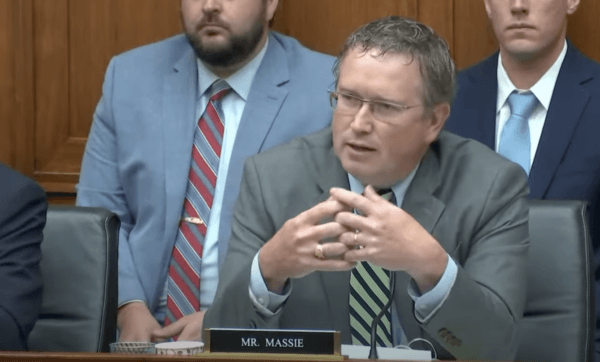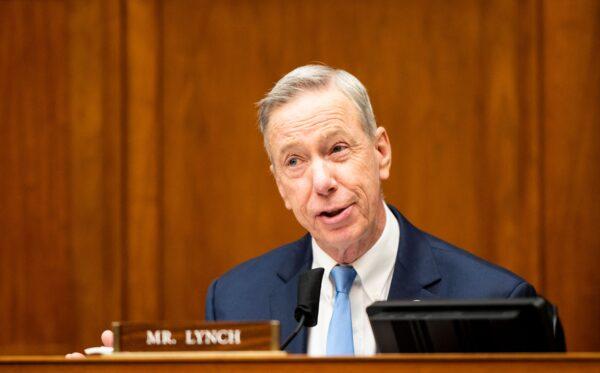A subcommittee hears that the government, banks, and big tech firms routinely ignore the Fourth Amendment’s guarantees against unreasonable searches.
Federal officials distributed to several of the nation’s biggest banks a politically motivated report from a left-wing activist group to discredit a conservative Christian public interest law firm that has won 15 Supreme Court cases in recent years.
Mr. Steube asked Jeremy Tedesco, a senior vice president at ADF, who was testifying before the hearing, for his reaction to the FinCEN’s action.
“It is unbelievable that that report is being used by the federal government to advise banks on domestic terrorist threats. But the bigger point is that the concept of ‘hate’ is a tool of suppression, and on top of that, that kind of language in speech and similar kinds of vague concepts are permeated throughout the financial industry and are used to shut down events and to de-bank people” Mr. Tedesco said.

The ADF is a Scottsdale-based nonprofit public interest law firm that specializes in defending the freedom of speech and freedom of religious expression and practice that are guaranteed by the First Amendment.
The group’s most recent Supreme Court win came last year when, in a 6–3 decision, the justices ruled that Colorado unconstitutionally sought to force Denver graphics designer Lorie Smith to provide creative services that violated her religious views.
House Judiciary Committee Chairman Jim Jordan (R-Ohio), who also chairs the weaponization panel, told the hearing that the FBI uses a secret web portal to distribute biased information about parents concerned about local public policies, Second Amendment rights advocates, evangelical and Catholic Christians, and other groups disfavored by left-wing officials.

The problem with such government activities, according to Republicans on the Judiciary Committee, is that they violate the Fourth Amendment’s guarantee against illegal searches and seizures without judicial warrants in which government officials must present evidence indicating a reasonable suspicion.
Rep. Thomas Massie (R-Ky.) began his questioning by reciting the Fourth Amendment, which provides that “the right of the people to be secure in their persons, houses, papers, and effects against unreasonable searches and seizures shall not be violated and no warrants shall be issued but upon probable cause, supported by oath or affirmation and particularly describing the place to be searched and the person or things to be seized.”
Mr. Michael responded: “Once the bank or financial institution has the information, then the government has it, so this came up in the early court challenges and in the Supreme Court cases in that we effectively have a law that is a blank check for the federal government or law enforcement to obtain all of your information simply without a warrant. They do not have to get a warrant; they do not have to show probable cause.”
“They know where you live, they know where you work, they can figure out, potentially, things like your sexual orientation, they can figure out or at least have a high degree of knowledge of what your interests are, they can figure out or have a high degree of knowledge of what your religion is, what political beliefs you support,” he said.

Mr. Knight further noted that using searches by banks of customers’ private financial data, the government can determine if an individual owns a firearm, has had an abortion, and get around medical privacy laws to obtain information about an individual’s health.
Democrats on the panel at times laughed at statements by Republican members and characterized the hearing as the latest example of House GOPers seeking to obscure the events of the breach of the U.S. Capitol on Jan. 6, 2021.
Rep. Stephen Lynch (D-Mass.) told the hearing in his opening statement that “as evidenced by today’s hearing, the singular mission of this so-called subcommittee on weaponization and the House Republican leadership is the proliferation—or ironically, the weaponization—of false narratives for political purposes. Combined with the rudderless efforts to develop evidence for the impeachment of President Biden, these proceedings have become increasingly bizarre at every turn.”
Mr. Lynch accused Mr. Jordan of being “determined to obscure the facts surrounding Jan. 6” and said the hearing appeared to be based on “the false narrative that conservative Americans and even Bible purchasers are targets of pervasive and baseless financial surveillance by the federal government.”
Original News Source Link – Epoch Times
Running For Office? Conservative Campaign Consulting – Election Day Strategies!


